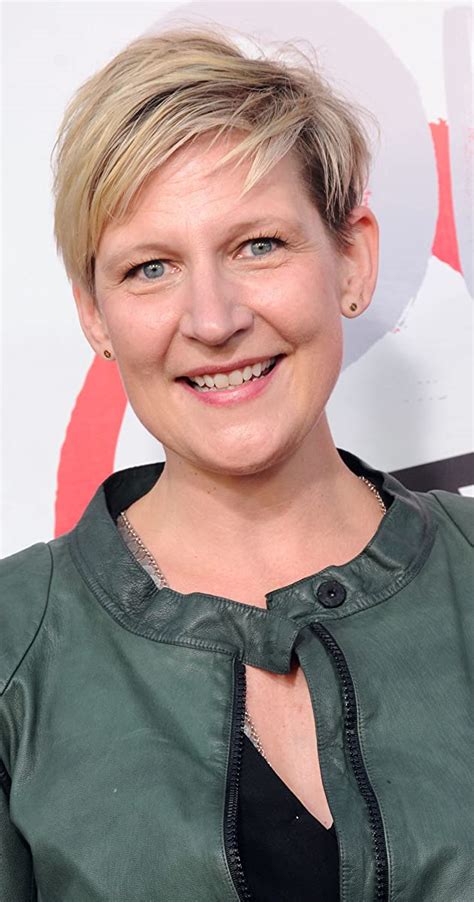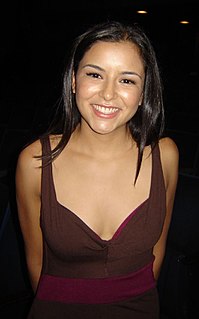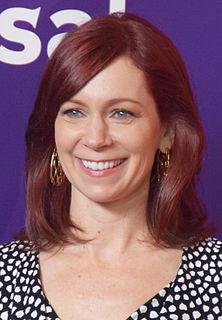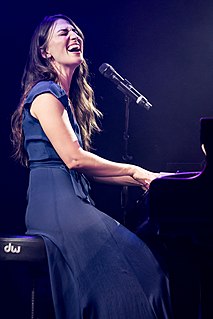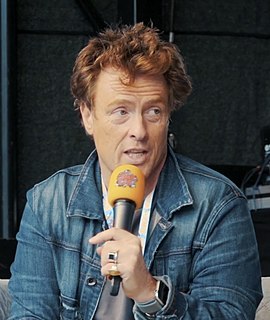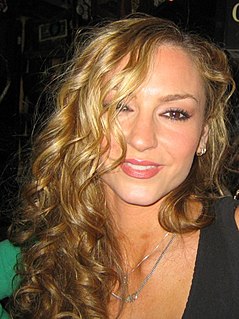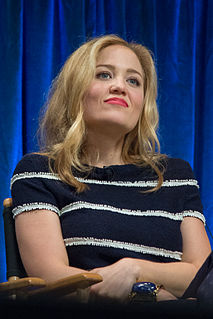A Quote by Channing Tatum
I don't want to do only movies that I'm in. I definitely want to start to branch out and do TV and stuff that I'm not in and really make a good run at it as a production. I'm probably going to take a break from acting after a little while because I've enjoyed the developmental process so much. It helps you as an actor to learn story and to learn how to really nurture a script and work with a writer so you're not sitting there having to write it yourself and give notes.
Related Quotes
Most development doesn't make it to series. So you want the writer and director to have a really good experience with development because, if it doesn't work out, you want to work with them again. You have to know their work really well, know the drafts really well, and when you give notes, you need to have really thought them through.
If I wanted to do TV full-time, 'Breaking Bad' is definitely the type of project I would want to do. But TV is not my favorite thing in the world. I definitely want to focus on film. It's what I grew up loving. It's always been about movies, movies, movies, movies, movies. I really want to make great films.
God is the creativity, so if you really want to enter into the world of God you will have to learn the ways of creativity - and that has disappeared. Instead of creativity we value productivity: we talk about how to produce more. Production can give you things but cannot give you values. Production can make you rich outwardly but it will impoverish you inwardly. Production is not creation. Production is very mediocre; any stupid person can do it, one simply needs to learn the knack of it.
I'm a critic. That means you are a writer. So, yes, you have to make yourself an authority on whatever subject it's going to be. Music, movies, literature, whatever it's going to be, but what you really want to do is learn your trade by reading other writers. I think you have to read veraciously, especially people who have done what you have done to see how it's been done in the past; what works, what doesn't work.
At the end of the day, the only thing I ever wanted to feel was loved. So I think if I could give someone a piece of advice, it's really learn how to be kind to yourself. In all of our ugliness and all of our brokenness and our bad choices, to really learn to nurture that part of yourself that can be your own big sister in a way.
I've also learned to only write songs and melodies that really work for my voice and that I won't have issues doing live. Because you can get really, really comfortable in the comping process: out of five takes, maybe one of those high notes that you struggled to do, nailed it, and then live you're having that challenge of really having to recreate that.
There were a lot of lessons of production to be learned. On the page, the biggest thing you learn on any TV show is how to write to your cast. You write the show at the beginning with certain voices in your head and you have a way that you think the characters will be, and then you have an actor go out there, and you start watching dailies and episodes. Then, you start realizing what they can do and what they can't do, what they're good at and what they're not so good at, how they say things and what fits in their mouth, and you start tailoring the voice of the show to your cast.
I could take the greatest deal-makers of all time and they've always had something that didn't quite work out. You never want to put yourself in the position where something not working out is bigger than what you are and therefore takes you down. It's got to be in smaller chunks. In all cases, I want to learn something from things that didn't quite work out and learn, so that it doesn't happen again or so that in the future, you make great decisions. You don't want to make the same mistake twice and you have to learn that early on in your life.
The visual stuff just lives inside of you. As far as really being able to take care of an actor on a set, how to talk to an actor, and how to get what you need out of a scene is probably where I might know a thing or two. Although, in TV, the actors are pretty much left alone. It's really the writer's medium more than anything.


